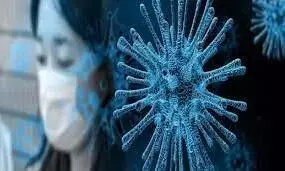
Genetic material of the coronavirus can persist in dust for a month, says study
text_fieldsNew York: A study published in the journal mSystems finds that some genetic material of the coronavirus can persist up to a month in dust in the rooms where Covid-19 patients were isolated.
Researchers from the Ohio State University in the US found RNA -- part of the genetic material inside a virus -- in 97 per cent of the bulk dust samples and in 55 per cent of the surface swabs, from the rooms where Covid-19 patients were isolated.
The researchers worked with the crews responsible for cleaning the rooms at a university where students who tested positive for Covid-19 were admitted. They also collected samples from two homes where people who tested positive for Covid-19 lived.
Vacuum bags of dust from the cleaning crews and from the home were collected. The researchers also tested swabs collected from surfaces in the rooms and tested them every week.
Even after four weeks, the virus's RNA did not significantly decay in the vacuum bags.
"We weren't sure that the genetic material would survive - there are many different organisms in dust, and we weren't sure we'd see any viral RNA at all," said lead author Nicole Renninger, an engineering graduate at the varsity.
"And we were surprised when we found that the actual RNA itself seems to be lasting a pretty long time," Renninger said.
Dust monitoring could offer a similar understanding on a smaller scale -- say, a specific nursing home, hospital or school, Renninger said.
However, the study did not evaluate whether the dust can transmit the virus to humans. But, it offers an option for monitoring Covid-19 outbreaks in specific buildings, including nursing homes, offices or schools.












